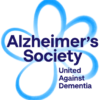On February 13 UNESCO is asking radio stations around the world to showcase the beauty of sport, in all its diversity. Community radio award winner IAN NOCKOLDS reports on World Radio Day.
This will be the seventh time that UNESCO have celebrated the power of radio across the world, engaging radio stations, regulatory bodies and the public, in a celebration of sport and its ability to inspire and connect communities.
I’ve had the pleasure of covering grassroots sport on Somer Valley FM, a community radio station based in North East Somerset, for the best part of ten years. My ambition was to shine a light on the clubs that commercial and public service broadcasters so often overlook.
The more that professional sport has become a business, the greater the separation between club and community. Community sport reminds us that the strength of any pyramid is not its pinnacle but its base.
It is all too common for the community sector to malign the professional broadcast industry as impure and morally bankrupt. I have even heard suggestions that the BBC needs the community sector more than the community sector needs them, yet nothing could be further from the truth.

I learned a lot during my time at Somer Valley, working with many great people, but nothing compared to what I learned in one afternoon with the BBC.
Thanks to the excellent relationship Somer Valley has with BBC Bristol, the sports team invited me to join their reporter, Ed Hadwin, for the full matchday experience at Bristol City. Ed was kind enough to talk to me about the kit he used and the format of the BBC’s Saturday sports programming.
I’d never listened before – too busy covering Western League and Southern League matches – yet I assumed my coverage was at least as good, if not better, than theirs. It quickly became apparent that Ed’s technical knowledge was far superior to my own and he was capable of multi-tasking in a way that I thought was impossible.
At my best, I may have been able to come up with something that sounded vaguely like a professional commentary, but I never had to write a match report, provide two reports to studio and lead a press conference, with a manager who was as volatile as he was embattled. In my opinion, that’s true class.
Going back to UNESCO. Their ambition is to promote media pluralism. The community sector, which is doing wonderful work to promote grassroots sport, can learn from professional broadcasters. World Radio Day is an opportunity for the community sector to appreciate rather than criticise the journalists, commentators and broadcasters that produce peerless coverage of elite sport.
I hope other community broadcasters get the chance to benefit as I did. One afternoon with Ed had a profound impact, not just in terms of highlighting what I didn’t know, but appreciating we are all in this together.
My real hope is that those professional broadcasters, who have so much to offer, will feel that World Radio Day represents the opportunity for them to make the first move. Don’t wait to be asked!
RELATED ARTICLE
Community show wins top prize

- The SJA charity partner for the British Sports and British Sports Journalism Awards is Alzheimer’s Society. Unite now – text UNITE to 70677 to donate £3 a month or visit alzheimers.org.uk/donatetoday
- To join the SJA, click HERE
